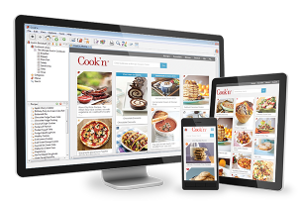
The potato is the fourth most important crop in the world, following wheat, rice, and corn. It originated with the Incas in Peru, where it was used as a staple food and to heal the tribe. The Incas attached raw slices to broken bones to fix them, pressed raw slices against their heads when they had a headache, and rubbed the potato on their body to cure skin diseases.
When the Spanish conquistadors robbed the Incas of their gold and silver to ship back to Europe, they also took potatoes to feed the sailors on the long voyage home. From Spain, the potato eventually spread throughout all of Europe. Queen Elizabeth I of England didn't favorably accept this new plant because her cook cooked the leaves and threw away the potato tubers. Yuck! But luckily, Queen Elizabeth I didn't influence the rest of Europe. France's queen, Marie Antoinette loved potatoes so much that she set a fashion for the women of France by wearing white potato blossoms in her hair. From Europe, the potatoes were carried back to the colonies of the New World. They have grown plentifully in the United States ever since, with Idaho growing the most potatoes, followed by Washington. Maine, Oregon, North Dakota, California, Minnesota, and Wisconsin also contribute to the potato harvest in the United States. However, Russia and China continue to contribute the most potatoes to the world.
The potato is packed with nutrients, including the following: Vitamin C, vitamin B6, niacin, folic acid, thiamin, pantothenic acid, riboflavin, iodine, iron, copper, phosphorus, magnesium, zinc, potassium, protein, complex carbohydrates and fiber. Many of these nutrients lie right under the skin, so when peeling potatoes, keep the skin as thin as possible to prevent loss of some of those vitamins and minerals.
Cook's Note: When selecting potatoes, choose ones that have a regular shape and are firm and smooth. Avoid potatoes with bruises, cracks, a green tint, or that are flabby.
Store your potatoes in a dark, dry place, loosely covered and unwashed. Don't refrigerate them, though, as the cold temperature will cause the starch to change into sugar. Warmth and moisture will wither and sprout your potatoes that's why storing them under the sink isn't a good idea.
When baking potatoes, choose ones that are similar in size. That way all of your potatoes will be done at the same time. Remember to prick each potato with a fork before baking or you might get a popped potato all over your oven.
This Potatoes recipe is from the Food Facts and History Cookbook. Download this Cookbook today.